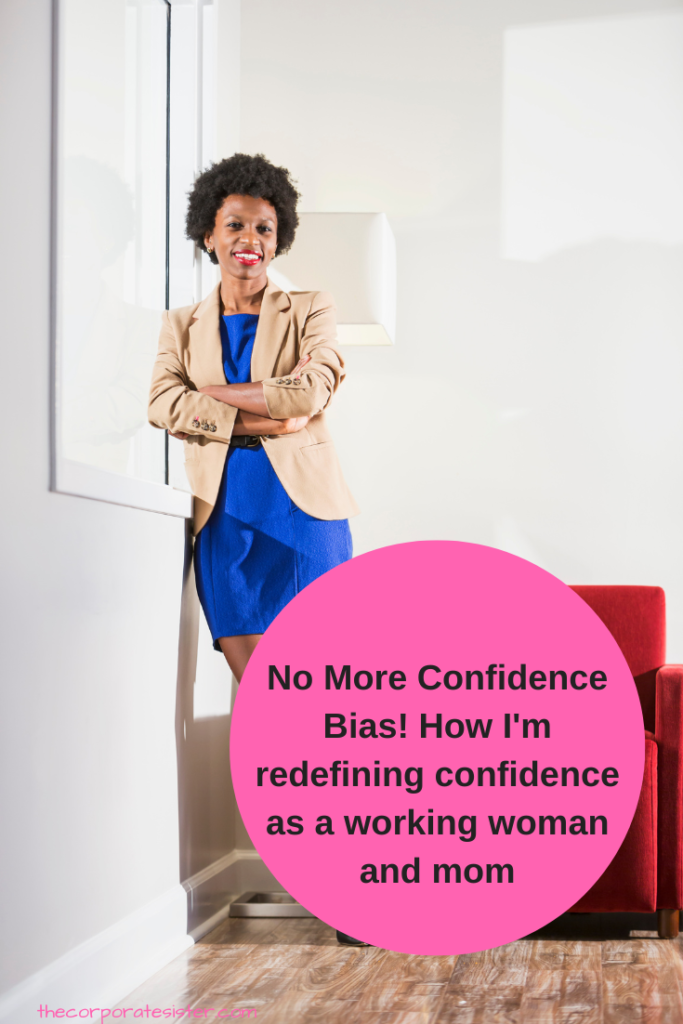How many times have you heard women “need to be more confident at work”? How many times have you yourself, in your own career and life experience, been told that you needed to be more confident? And if you happen to be confident, how many times have you perceived or been told you were “tew much”? Talk about a confidence bias for women…
Women at work are encouraged to be more assertive, more goal-oriented, more driven at work, mostly according and in reference to patriarchal parameters initially set by and for their male counterparts. Yet, while they’re criticized for not having enough confidence, especially in workplace settings, they tend to get harshly judged when found to be displaying “too much” confidence. This in itself is the confidence bias that has plagued so many women in and outside of their careers…
Confidence bias is when career failure in women is associated with lack of self-confidence; yet when women demonstrate confidence, they are often perceived as overdoing it, and thus lacking confidence. This is how the very concept of confidence that women are criticized of lacking, is actually weaponized against them.

According to research by the Harvard Business Review, while women identify confidence as a major career obstacle, men do not. This not only confirms the highly gendered nature of confidence, but also exposes how damaging this concept can be to women themselves, who end up blaming themselves for or regretting events which where largely out of their control. Prior research also demonstrates a confidence gap, whereby women are shown to have lesser levels of self-assuredness than their male counterparts, thus lacking a trait that matters as much as competence at work. This gap can actually be traced to gender trait and role differences between men and women. While men are shown to naturally demonstrate traits commonly associated with confidence such as assertiveness, even aggressiveness; women tend to display more nurturing, compassionate and empathic characteristics, which are also reflected in the traditional societal roles assigned to both genders.
Despite this, the 2023 Women in the Workplace report reveals that women are actually more ambitious than ever, even as they continue to prioritize their personal lives. This is evidence that while the confidence bias is certainly real for many, if not most women, especially at work, it may not be as simple as it has been depicted to be. Why does confidence have to be defined in patriarchal and masculine terms and traits? Why can’t confidence also be defined in more feminine attributes such as collaboration, empathy, and intuition? While the latter are clearly leadership skills, and confidence is increasingly being classified as a “soft skill” (there is nothing “soft” about soft skills, by the way), they’re still not being associated with confidence for women.
This is why in my own experience as a Black woman at work, and an introvert to boot, I’ve had to learn to redefine the concept of confidence for myself. Emulating the masculine, and very much patriarchal model of confidence, based on overt assertiveness bordering on aggressiveness, has always felt inauthentic. Instead, developing my own brand of quiet confidence has always felt more like “me”. Granted, it did not work in the many environments where that brand of confidence was not valued (which unfortunately still constitute many, if not most work environments)…Yet, in the environments in which it has worked and been valued, the rewards, both personal and collective, have been astounding…
In some way, I have been waging my own quiet confidence war and revolution as a working woman and mom. So have many other working women and moms around… If this is something that resonates with you as well, here are a few tidbits from my own journey that you may find helpful:
- Revisit your own confidence bias
Believe it or not, you hold your own confidence bias. We all do, and much of it has been embedded in our subconscious from the various messages, intentional or not, we’ve received from society. I know I’ve blamed myself for not being confident enough for the longest time, resolving myself to remain hidden in the background. For the longest time, I thought I was born that way, that confidence was a skill or attribute that I somehow had missed out on. This subconscious message was so deeply embedded in my mind that it became a personal belief I held on to for dear life.
Yet, what I learned from a complete career transition and a journey of personal and professional growth, is that not only is confidence a skill we possess as individuals; but that we can also develop our own brand of powerful and authentic confidence, especially in the workplace.
What are your assumptions and beliefs about confidence in general and about your own confidence?
- Develop your own brand of confidence
What is your own brand of confidence? How do you most authentically feel self-assured in who you truly are? It took me decades to first recognize these questions as valid, and second find my own answers. I feel most confident when I am working in my purpose, writing, teaching, sharing and exchanging ideas. That’s what I would call my “zone of confidence.”
As a matter of fact, I’ve found confidence to be closely linked with authenticity of purpose and values. The more closely you are aligned with your purpose and values, the more confident you may tend to feel. Conversely, the further away you may be from your purposeful path, the harder it may be to muster an authentic sense of self-confidence. Not just the outer confidence we may feel compelled to put on display to respond to self-imposed or societally-imposed pressure; but rather the true sense of confidence that begins on the inside..
What is your zone of confidence? How and when do you feel your most confident? Are you able to find it in your current work? If not, it may be time to reconsider…
- Embody what your own brand of authentic confidence is
Last but not least, embodying your own brand of confidence really means stepping into, and standing in your zone of confidence. This is the part that may require not just a mental shift, but also the power of repetition and practice to master.
For me, it’s a matter of cultivating the discipline to show up daily (or almost daily) in my zone of confidence, whether through writing, teaching, sharing or exchanging ideas. It’s the power of practicing imperfect action, day after day, and collecting the sometimes infinitesimally small rewards that add up to the work of our lifetimes.
Indeed, for the longest time, and to this day, society has largely defined confidence as a masculine and patriarchal concept, thereby creating a confidence bias that has been weaponized against women. Yet, what if this definition of confidence were nothing but a social construct that can be dismantled as well as it’s been built? What if confidence could be redefined, and reclaimed, for women in ways that truly align with their purpose and values? What a different and more evolved workplace and world we would see then….
What is your own working woman brand of confidence?
The Corporate Sis.








Medicine information for patients. Effects of Drug Abuse.
cost priligy
Actual about medicines. Read information now.
http://www.hcceskalipa.cz/bazarek/nuzhno-bystro-poluchit-rabotu-mechty
http://decorserv.ru/otzyvy/?unapproved=223856&moderation-hash=2f4d138a630308aaf7fc369dcf68f2dc#comment-223856
https://webhitlist.com/forum/topics/melbet-uganda
http://www.comtt.ru/plyr/pgs/luchshie_mobilnue_kazino_onlayn__igrayte_i_vuigruvayte_v_puti.html
http://zgorka.ru/
http://drive-tv.ru/
http://energiyacosmosa.winbb.ru/viewtopic.php?id=1272#p5246
http://sennenhund.bbok.ru/viewtopic.php?id=2435#p97015
http://www.archproject3.ru/img/pages/kak_ispolzovat_bezdepozitnuy_bonus_kazino__rukovodstvo_2023.html
http://evol.5bb.ru/viewtopic.php?id=999#p10385
http://forum.energies4you.com/viewtopic.php?f=17&t=21882&sid=b9c66e62a8da7fb24fab5c8f69660fbf
https://aspiringexecutives.mn.co/posts/50218718
https://astrolife.ruhelp.com/viewtopic.php?id=3795#p34912
http://www.bike.by/forum/viewtopic.php?f=81&t=27284
http://www.schoolbrazil.ru/
Pills information for patients. Short-Term Effects.
lasix medication
All news about medicines. Get now.
Medication information. Short-Term Effects.
augmentin
Everything trends of meds. Get now.
Medicine prescribing information. Generic Name.
celebrex
Actual information about meds. Read here.
http://army.clanfm.ru/viewtopic.php?f=2&t=36055
Medication information sheet. Generic Name.
cialissoft
Some information about medicines. Get information here.
Medicines information. Drug Class.
seroquel online
Everything trends of drug. Get now.